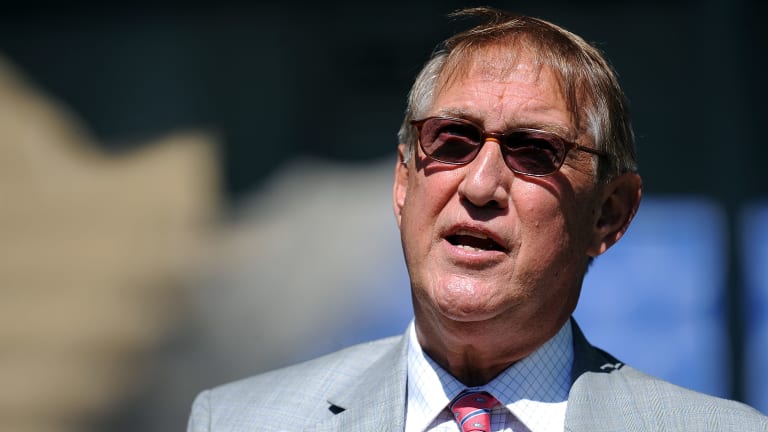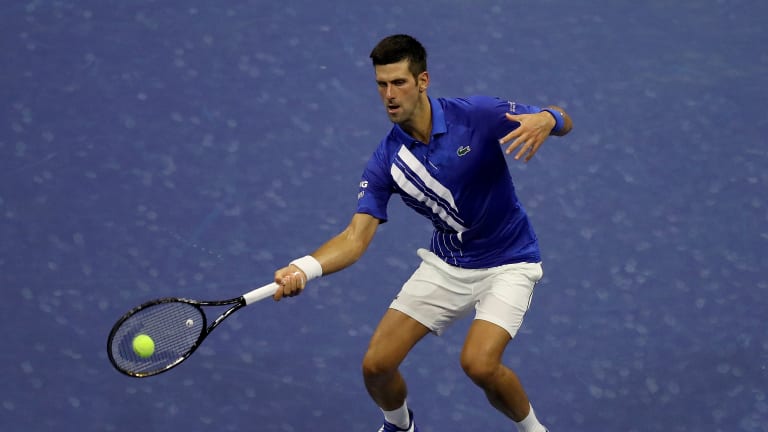“There is a tide in the affairs of men which, taken at the flood, leads on to fortune,” said Shakespeare’s Cassius.
There is a general feeling among the tennis cognoscenti with whom I have spoken that Novak Djokovic, who seems to be taking on a Cassius persona with Vasek Pospisil as his Brutus, is riding the wrong tide.
They may not want to assassinate the ATP's new Caesar, Andrea Gaudenzi, but walking out of the tour's Player Council, of which Djokovic was president and Pospisil a member, to form a new Players' Association would seem at least to be something akin to a declaration of war.
Djokovic held a meeting as the US Open started at an otherwise deserted tennis center and some 70 players showed up. I am told 68 signed a document supporting the creation of the Professional Tennis Players Association (PTPA). To do what exactly? That is the question that is baffling those of us who have been in at the beginning of efforts to give players a voice in the game, like Donald Dell, Butch Buchholz and Vijay Amritraj.
This week Pospisil has tweeted that “the PTPA did not emerge to disrupt or cause any issues within or outside the tennis tour. Simply to unify players and to have our voices heard.”
We live in a world where less and less makes sense, and that makes none. Since they began to dominate the men’s game, Djokovic, Roger Federer, Rafael Nadal and Andy Murray have largely supported each other and worked together, all of them having spells on the ATP Player Council. Federer and Nadal have come out against the PTPA concept, so how is that unifying? The disruption and disunity is clear and real.
!
Djokovic hasn't shied away from controversy in 2020, the latest example being his backing of a new players' association. (Getty Images)
And as far as having their voices heard, Pospisil and Djokovic, the latter now the former president of the Players Council, were ideally placed to do just that. It is what the Council is for. Yet the world No. 1 said the ATP Board—consisting of three player representatives and three tournament directors, and chaired by the new ATP boss Andrea Gaudenzi—wouldn’t listen to their demands. If so, fire them. Deal with in house problems in house. Don’t go running off creating new entities in a splintered sport that has always had far too many.
The timing is awful, for both tennis and non-tennis reasons. Djokovic was among those who interviewed Gaudenzi, a former Italian No. 1 with an impressive record in business since retirement, for the job of replacing Chris Kermode, whose removal was far from unanimous. Everyone bought into Gaudenzi’s plan for the future in January. How about giving the man a chance? Since then, tennis and the world have been thrown into chaos by COVID-19. Gaudenzi can hardly be accused of doing anything right or anything wrong. He hasn’t had the opportunity to do either.
And, on a broader scale, with over 184,000 Americans dead from the coronavirus and social justice issues dominating public discussion, discontent among tennis players does not rate high on the urgency scale.
Donald Dell, who wrote the by-laws for the original ATP in 1972, calls the creation of the PTPA pathetically naïve and unclear.
“It looks suicidal to me,” Dell told me. “They don’t have Federer, Nadal or the bulk of the Top 20. Are they proposing to still play on the ATP Tour, which costs $40 million to run and provides all the tour managers, physios and support staff with three offices worldwide? And if they break away from the ATP Board, they just strengthen the hand of the tournament directors who will form their own association.”

